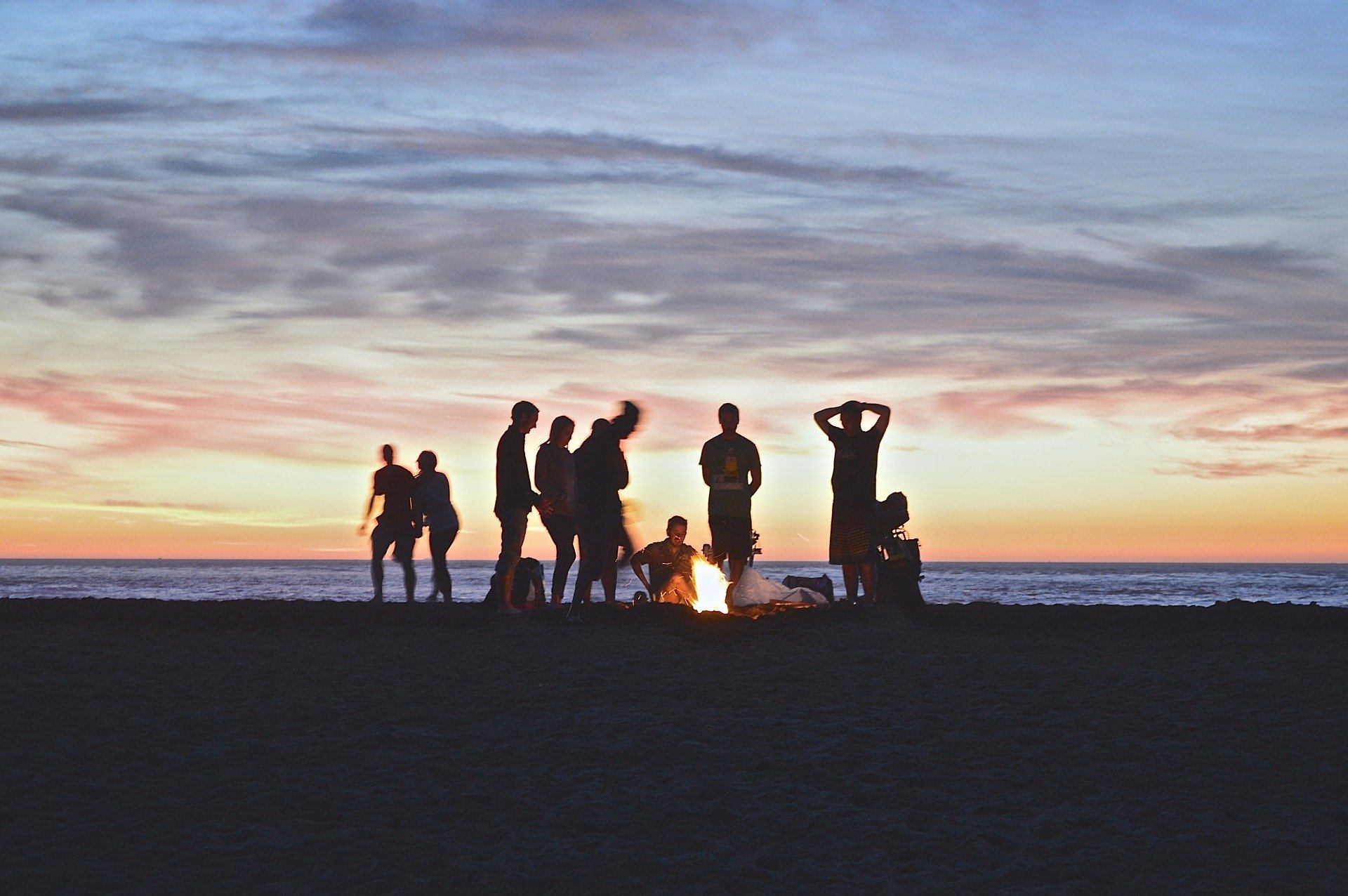[UPDATE 11th June: Barcelona city's beaches will be CLOSED for the eve of Sant Joan, the night of 23rd June, to avoid coronavirus risks. The Barcelona city council says the ten beaches in the city, as well as the bars located on them, will be closed from 8pm June 23rd until 10am June 24th.]
Normally, it's the quintessential midsummer's night celebration in the Catalan countries: la revetlla de Sant Joan, the Eve of Saint John, on the night of June 23rd.
But Catalonia's Civil Protection department has this Friday given a reminder that, due to coronavirus, the festival of Sant Joan will not be able to be like those of previous years. Bonfires, sky rockets and celebration - but not quite so massive as usual.
Private parties, in groups of up to 20
The maximum size of private gathering allowed depends on the phases of the coronavirus de-escalation. Thus, if the current regulations are maintained and the whole of Catalonia is in Phase 3, private parties may be held with a maximum of 20 people. For organized parties there are, however, two categories: those in enclosed places are allowed with a maximum of 80 people, and those organized in open places may accommodate up to 800 people, but seated, in separate groups of no more than 20, and maintaining safety distances of two metres.
Thus, for the popular Sant Joan beach parties, local police will have the unenviable task of ensuring that individual groups don't exceed 20 people and that they maintain a safe distance from other groups - a job that will be made much simpler if people act responsibly in order to prevent the midsummer nightmare of a Covid-19 resurgence.
Take care with fire - and with the virus
In an appearance by the Catalan interior minister Miquel Buch and Civil Protection leaders Isabel Ferrer and Sergio Delgado, all three stressed that in addition to the usual precautions applying to Sant Joan celebrations - focused on the need for care with fireworks and bonfires and forest fire risks - this year there will be new precautions to take, as a result of the Covid-19 pandemic: especially masks, hand cleaning and social distancing. Although, as Miquel Buch commented, it will be possible to celebrate the festival more than this year's Diada de Sant Jordi on April 23rd, it will be a different Sant Joan to other years.
Civil Protection has been working on the protocols for this festival for weeks, together with the Catalan culture ministry, town councils, pyrotechnic companies, the Red Cross and all the other services. In fact, each municipal council will adapt the general regulatory framework to its particular circumstances.
The usual mass celebrations will not be allowed. Indoor party organizers will have to limit attendance to 80 people. In open places, the maximum capacity of organized parties will be 800 people seated, who will have to maintain safety distances or wear masks. Groups up to 20 people will be able to go to the usual Sant Joan locations, such as beaches and squares. Local police will have to limit access to prevent the different groups from being too close to each other, as they will also be doing during the day with regard to beach, sunbathing and sporting activities.
Hand gel and fireworks don't mix
Delgado admitted that high densities of partygoers on the beaches is one of the aspects that worries them most, in terms of possible sources of infection. For that reason, he called for responsibility from the public.
Two specific recommendations for this year's Sant Joan festival, in addition to the usual firework precautions, is the instruction to avoid carrying bottles of alcohol-based hand gel in bags and pockets when fireworks are around, as the gel is inflammable and may pose a risk. Civil Protection recommends that those who want to set off firecrackers should wash their hands first with soap and water and not share objects with anyone else. Masks are not inflammable, but they could catch fire if a spark falls on them, so special care with masks is also required.
Finally, Buch commented that the best tribute that people can give to the health and emergency personnel who have worked so hard during the pandemic is to keep their parties safe. He also recalled that this year marks the tenth anniversary of the tragic death of several young people crossing a rail line at Castelldefels Platja train station on the midsummer party night in 2010.
GUIDE | Coronavirus de-escalation: which phase am I in and what can I do?
MAP | Coronavirus infections in Catalonia by municipalities and neighborhoods
GRAPHS & DATA | Latest coronavirus statistics for Catalonia and Spain

